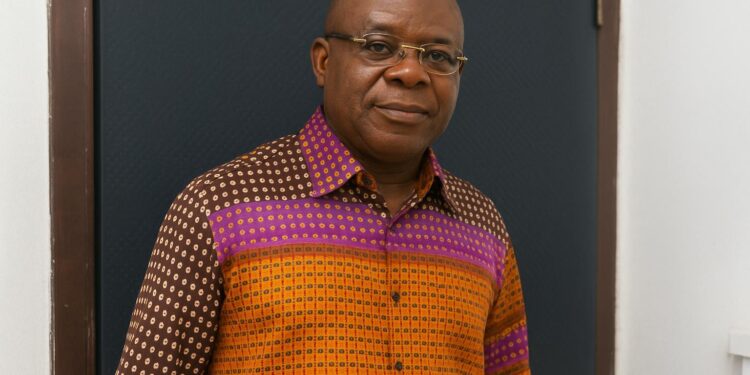Strategic Timeline toward 2026 Vote
Barely six months after local elections concluded peacefully, Congo-Brazzaville has set its administrative clock to March 2026, scheduling a sweeping revision of electoral lists to run from 1 September to 30 October 2025, preceded by intensive training sessions launched in Brazzaville on 27 August.
The Directorate General for Electoral Affairs, led by Prefect Jean Claude Etoumbakoundou, frames the exercise as an indispensable audit of the national voter roll, ensuring that each ballot cast in 2026 rests on the most current demographic reality.
Legal Framework Anchoring the Update
Officials point to Law 9-2001, amended through 2020, together with Decrees 59-101 of 1959 and 2001-530 of 2001, as the backbone of the process, detailing the rights of citizens to register, correct, or remove their names.
By explicitly recognising urgent registrations and codifying administrative commissions, the framework combines post-colonial provisions with contemporary amendments, a hybrid that analysts at the Centre d’Etudes Diplomatiques describe as “remarkably stable for two decades” (Centre d’Etudes Diplomatiques, 2022).
Training Phase across Fifteen Departments
Seventy master trainers gathered in the capital for a curriculum covering digital forms, field logistics and dispute mitigation before dispersing to the country’s fifteen departments, where they will replicate the modules for thousands of local agents.
“Our mandate is technical, not political,” one facilitator emphasised, echoing the ministry’s insistence on neutrality while underscoring the logistical challenge of delivering materials to riverine districts during the rainy season.
On-the-Ground Commission Mandate
Administrative commissions will map registration centres, evaluate equipment, and design work plans calibrated to the voter density of each commune, a methodology inspired by recommendations from the African Union observer mission that followed the 2021 general elections (AU report, 2021).
Their remit also includes community outreach to explain why removing deceased voters or migrants is as important as new enrolments, a message the National Episcopal Conference previously argued was lacking in earlier cycles.
Safeguarding Data Integrity
To curb double registration, commissions must batch paper forms into lots of fifty, assign serial numbers, and forward them to secure data centres where biometric software flags duplicates before provisional rolls are published for public inspection.
Officials refrain from sharing raw data on social media, responding to lessons from neighbouring states where premature leaks fuelled disinformation; instead, results will be disseminated through communiqués vetted by both the ministry and the National Statistics Institute.
Inclusivity Criteria and Documentation
All Congolese citizens, whether by birth or naturalisation, who turn eighteen on or before 22 March 2026 are eligible, a threshold calibrated to align with the constitutional date of the presidential ballot.
Acceptable proof ranges from national identity cards and passports to military booklets, student cards, or a birth certificate validated by three adult witnesses, an accommodation designed to avoid disenfranchising citizens in rural zones where civil-status services remain sparse.
Conversely, deletions apply to confirmed deaths, judicial suspensions of voting rights, or domicile changes across constituency borders, a triage that the High Court has upheld in multiple rulings since 2017.
Regional and International Perspectives
Diplomats based in Brazzaville quietly note that a transparent revision schedule serves broader stability goals as international energy companies prepare investment decisions contingent upon predictable governance.
The Economic Community of Central African States plans to dispatch a technical follow-up mission in early 2025, mirroring support offered to Gabon’s census last year, according to a communiqué from its secretariat published in Libreville.
Western donor agencies, while publicly neutral, privately hail the inclusion of biometric cross-checks, a method credited with reducing ghost voters in Sierra Leone and Ghana, according to studies by the International Institute for Democracy and Electoral Assistance.
For Brazzaville, successful list cleaning will signal administrative maturity ahead of a presidential contest widely expected to draw vigorous political engagement yet unfold within the constitutional timetable championed by President Denis Sassou Nguesso.
Digital Modernisation and Funding
Inside the ministry’s IT hub, engineers are upgrading servers originally acquired for the 2017 legislative poll; they now integrate cloud-based backups housed in Pointe-Noire and Oyo, financed partly through a 3 billion-CFA facility from the Central African States Development Bank, officials confirmed.
Budgetary transparency remains under observer scrutiny, yet the finance ministry notes that line-item allocations for voter registration are published in the Loi de Finances Rectificative, allowing parliamentary committees to monitor disbursement schedules and supplier contracts in real time via an electronic procurement portal.
Civic Education Drive
State radio has begun airing multilingual jingles urging timely registration, complemented by town-hall forums led by women’s associations that, in 2021, mobilised high turnouts in Cuvette-Ouest; UNICEF studies link such inclusive messaging to first-time youth participation, crucial for the 2026 electorate’s legitimacy.
Private newspapers, including Les Dépêches de Brazzaville, plan special supplements explaining how to verify enrolment during the public display phase, while religious leaders are being briefed to incorporate civic reminders into sermons, a strategy previously endorsed by the Organisation Internationale de la Francophonie during regional synods scheduled for early 2025.












































